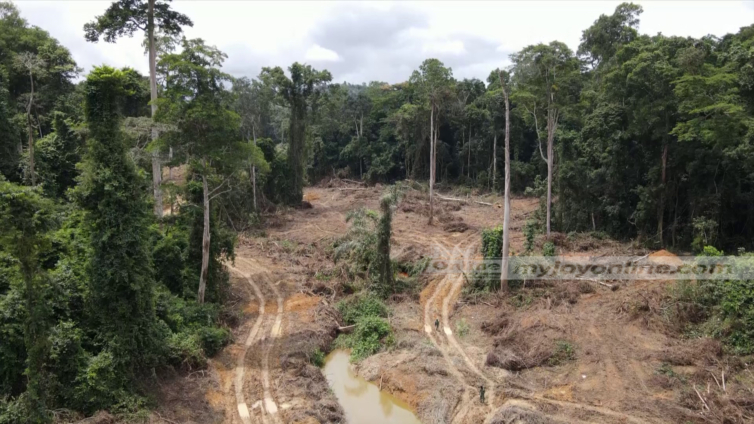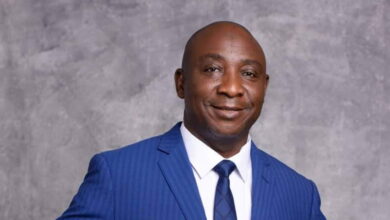Delusions of solutions: The uncomfortable parallels of galamsey toxins and neoliberal Christian noises


Ghanaian society is bipolar. This is the plain truth. We lack the cultural will to stop anything that threatens us—especially if someone is profiting from it. And yet, in our national anthem, the only line we sing twice for emphasis is: “And help us to resist oppressor’s rule with all our will and might forever more.” We sing this with gusto, even as we make room for every social menace that can be monetised or serve some group interests.
This national contradiction isn’t new. During the colonial era, some of our own people worked tirelessly to sabotage the struggle for self-governance. They travelled to Britain to appeal to the Colonial Office to slow down or halt the independence efforts. The descendants of some of these people are still among us—committed, even now, to assassinating the name, memory, and legacy of Kwame Nkrumah, the very man who led our liberation and founding of our nation. Just last year, in the heat of the 2024 elections, we were reminded—loudly and arrogantly—that this lineage of sabotage remains alive and well in our body politic.
For eight years—up to the political shift in 2025—we watched a ruling government operate with brazen disregard for the national interest. Ghanaian “defenders” in both the ruling party and the general public stood by in silence. Those who dared to speak up were met with raw arrogance and venomous pushback. The bipolarity and shame deepened when President Akufo-Addo, having declared he would put his presidency on the line to stop Galamsey, presided over its worsening. Under his tragic leadership, the destruction became not just rampant but seemingly state-sanctioned. Our forest reserves were decimated, our rivers turned to sludge, our waters poisoned. Even when doctors raised an alarm about rising birth deformities due to toxic contamination, galamsey persisted unchecked.
And all this while, for eight years, we kept singing to God to “help us resist oppressors’ rule”—as if resistance were merely a song, not a civic duty.
Instead of protecting the land, state resources were spent to demolish new homes to find accommodation for God. As always, sections of the clergy showed up—some to bless the project, others to faithfully enable them. A few, realising the stench of complicity, belatedly jumped out of the hole with soiled cassocks in hand. And we watched—many people pacified by the belief that constitutional term limits would eventually offer reprieve.
Even after a decisive electoral rejection of the Akufo-Addo/Bawumia tragic era, some in the vocal minority still insist it was the best governance Ghana has ever seen, while in grand bipolar style, the party’s own flagbearer begs Ghanaians to forgive their misgovernance.
This bipolar trait isn’t new. This is who we are.
We saw the same passive complicity when the Born-Again movement surged decades ago, and Christianity was transformed—bastardised—into a lucrative, noisy neoliberal enterprise. People were outraged by the noise invasion of our homes, schools, offices, and public airwaves. But those who profited from it wielded scripture like a shield:
“Make a joyful noise unto the Lord.”
“Touch not the Lord’s anointed“
And so it became Kingdom Business that enabled them to build their empires at our expense. How different is this from Galamsey kingpins and party officials who wield mining licenses and government permits granted to them to shield off calls from sane sections of society to stop Galamsey?
Noise pollution became sanctified. To be a “true Christian” today, for many, is to demonstrate one’s spirituality through loud vocal theatrics and guttural outbursts enabled by an imported American Holy Ghost. The self-anointed “men of God” captured the Ghanaian public space, holding everyone hostage with threats of hellfire and divine wrath. They normalised noise, divine buffoonery and chaos while moving themselves into the peace and serenity of plush gated communities. Just like galamsey kingpins—who live comfortably far from the poisoned rivers and devastated lands—the gospel gangsters carved out sanctuaries of quietude for themselves and their children, while the rest of us lived with the fallout.
Time and again, we’ve shown that as long as some big people benefit from a crisis, we will rationalise it. Galamsey is no exception. In fact, it’s just the latest manifestation of a pattern we’ve perfected: passive complicity dressed in socio-cultural indifference.
The real menace is not just illegal mining. The real threat is our collective ability to normalise the abnormal—our cultural knack for adapting to dysfunction. Galamsey isn’t the root of our decay. It’s a symptom of something deeper: a society willing to trade its future and sanity for short-term gain and divine noise.
The parallels are stark: the politicians capture state power, the evangelical entrepreneurs capture the public space, and galamsey kingpins capture the natural resources—often defended by their political cronies and prayed for by apostolic fathers. This is the social portrait and unholy trinity of who we are. Galamsey is simply the latest Pro Max version or update of neoliberal Christianity—loud, lucrative, and lethal. And just like we adjusted our eardrums to tolerate the loud church noise and other indecencies from our predatory pastors, we are gradually adjusting our lungs, livers, and kidneys to accommodate Galamsey’s environmental toxins.
Our so-called efforts to stop galamsey are mere paper rituals—press conferences, media hashtags, campaign soundbites, and near-state of emergencies that don’t show anything is an emergency to the state.
Meanwhile, young men, like daredevils, openly flaunt the destruction of our forests and cocoa farmlands, in the same way neoliberal Christianity still does with loud public address systems in our streets, neighbourhoods and the media. And like we did with the noise from churches, we’ll eventually get used to this too and remind those who complain about it that they’re ageing.
But when both young and old start dying from it in commercial quantities, no one should be surprised. After all, didn’t we once declare that “All die be die”?
Amarkine Amarteifio.
Artist.
28th September 2025.
DISCLAIMER: The Views, Comments, Opinions, Contributions and Statements made by Readers and Contributors on this platform do not necessarily represent the views or policy of Multimedia Group Limited.
DISCLAIMER: The Views, Comments, Opinions, Contributions and Statements made by Readers and Contributors on this platform do not necessarily represent the views or policy of Multimedia Group Limited.
Source link





